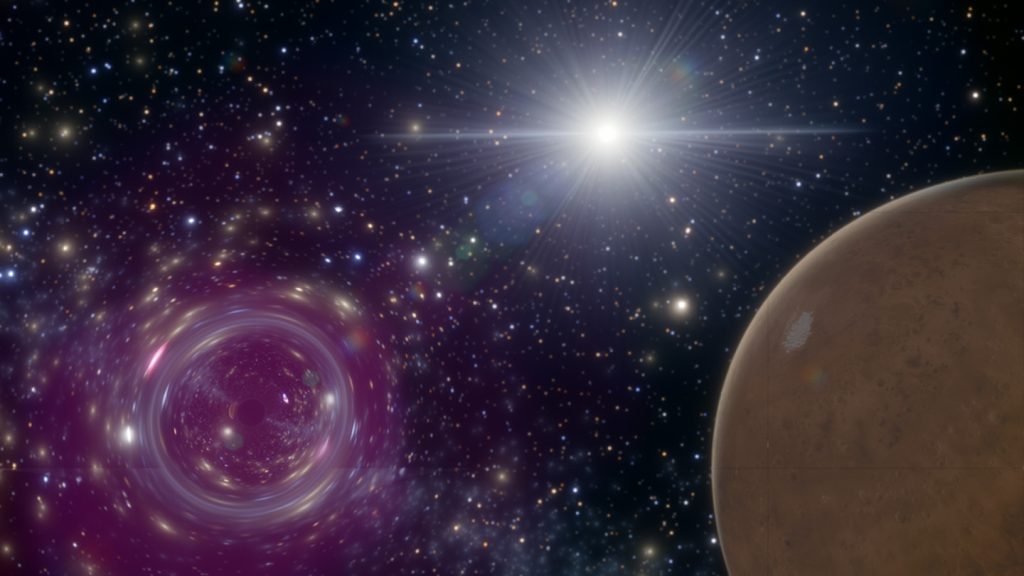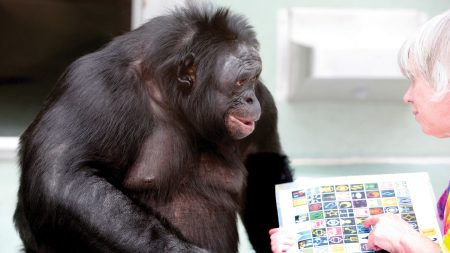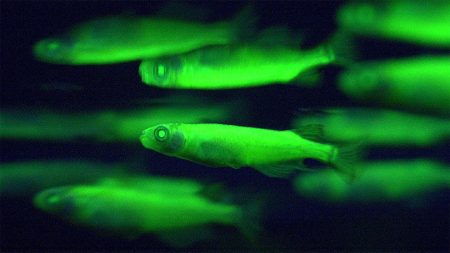Scientists are exploring the effects of primordial black holes passing close to planets and satellites in our solar system. These black holes would be smaller than those typically formed from dying stars, and they could have noticeable effects on the orbits of planets and the trajectories of satellites. For example, a primordial black hole passing close to Mars could cause the planet to wobble in its orbit around the sun. Similarly, these black holes could jostle GPS satellites and other satellite networks, causing them to change altitude by a small but detectable amount. Despite the challenge of distinguishing a black hole flyby from other phenomena, researchers are optimistic about the possibility of detecting these events in the future.
The study of primordial black holes passing through the inner solar system is still in its early stages, but scientists are eager to explore the potential implications of these celestial events. Data on satellites’ trajectories and Mars’ orbit are being analyzed to identify possible wobbles that could be attributed to primordial black holes. Researchers believe that the satellite search method could complement the planetary wobble technique by being sensitive to black holes of smaller masses. While the identification of true primordial black hole flybys remains a challenge due to the presence of other space objects, scientists are hopeful that ongoing research will lead to new discoveries.
Although the concept of black holes passing through our solar system may seem like a distant possibility, researchers are excited about the potential to detect these cosmic events. The unique gravitational effects of primordial black holes on planetary orbits and satellite networks could provide valuable insights into the behavior of these mysterious objects. While the detection of black hole flybys may be a rare occurrence, scientists are optimistic about the future possibilities of observing and understanding these celestial phenomena. The study of primordial black holes represents an exciting area of research in astrophysics, with the potential to deepen our understanding of the universe and its complex interactions.
The presence of primordial black holes in our solar system could lead to a variety of effects on planetary orbits and satellite trajectories. By studying the potential wobbles in Mars’ orbit and changes in satellite altitude, scientists hope to identify the existence of these small black holes passing through our cosmic neighborhood. While distinguishing black hole flybys from other phenomena presents a challenge, researchers are optimistic about the advancements in technology and data analysis that could enable the detection of these rare events. The study of primordial black holes holds promise for furthering our knowledge of the universe and the forces that shape it.
Understanding the potential impact of primordial black holes on our solar system requires detailed simulations and data analysis. Researchers are partnering with experts in planetary science and cosmology to explore the effects of black hole flybys on Mars, satellites, and other celestial objects. By combining the planetary wobble technique with satellite observations, scientists hope to gain a comprehensive understanding of the behavior of primordial black holes in our cosmic environment. The collaboration between researchers from different scientific disciplines highlights the interdisciplinary nature of astrophysics and the importance of teamwork in addressing complex questions about our universe.
While the detection of primordial black holes passing through our solar system may pose a significant challenge, scientists are committed to exploring this fascinating phenomenon. By analyzing decades of satellite data and planetary observations, researchers aim to identify any anomalies that could be attributed to black hole flybys. The potential implications of these cosmic events on our understanding of the universe and its fundamental forces are significant, prompting further investigation into the behavior of small black holes in our solar system. The study of primordial black holes represents an exciting frontier in astrophysics, with the promise of new discoveries and insights into the mysteries of the cosmos.















